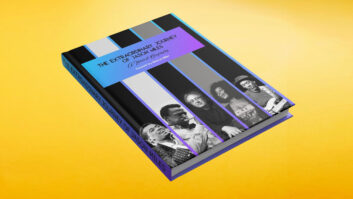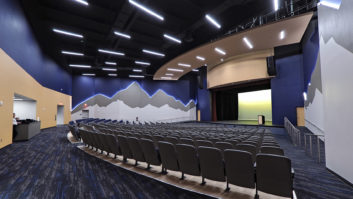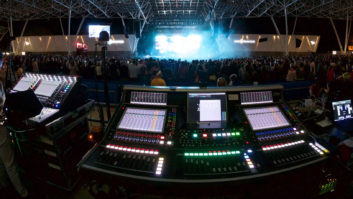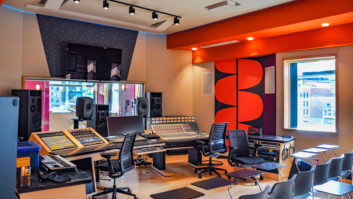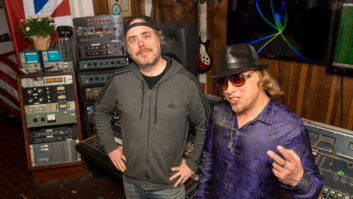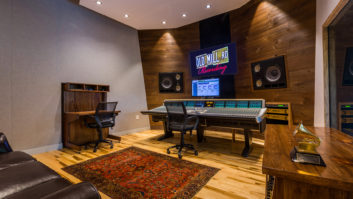Now that we’re into the new year, a year that promises improving conditions over the last few and we all seem to agree things are looking up, what’s next? What are the post-recession expectations of the professional audio engineer?
Those of us in broadcasting, sports, corporate positions and even film should see some easing up on tight hiring budgets this year, with shrunken audio staffs being replenished and rack spaces being refilled (though often virtually, with software). And pro audio manufacturers are already reporting some good numbers.
One sector of the audio business I fear won’t see the benefits of the general economic improvement is that of music production. While we were all fretting over the big picture, the revolution happened; what we see now is chaos — the aftermath that follows revolution. Major label budgets are now indie-sized; indie budgets are now “go make it yourself and we’ll distribute;” and unsigned artists are making their own records with friends on laptops (or tablets, or phones, etc.).
Here’s the reality of the modern recording budget. You may choose to give away your recordings, making your entire recording budget a purely promotional expense with no clearly definable returns; you may stream your recordings, earning perhaps four thousandths of a cent per play (i.e. Spotify), significant only if you’re getting millions of plays; or you might resist the technology and earn the higher returns of CD duplication and distribution, a viable but risky and arguably archaic business plan.
And what about our underlying technological changes? A new breed of engineer/hit-maker has emerged, one who tracks drums in a bedroom with questionable results, yet can “expertly” use drum replacement software; that records basses and guitars via DI and virtual “amps” to get their tones, racks and stacks; and that captures keys and MIDI instruments of all kinds via virtual synths and sample libraries successfully, well beyond the point of convincing. As such, average ensembles become fantastic ones when the new schoolers snap to the grid and apply groove templates … trained vocalists, backup singers and lavish mic closets have been replaced by one singer, mic modeling and the genius-like operation of auto-tuned DAW power. Today, a recording studio may not be required to make popular music, but software, talent and ingenuity certainly is. Economic growth can’t change these fundamental dynamics and technology never, ever reverses itself. Legislation can’t change the new reality, either; this is like the photography or print publishing business: still here, but growth is in the virtual world.
The only thing for certain is change … and lots of it, including artistic redirection. A renaissance will soon be upon us: a purely artistic age characterized by skill and sincerity, less influenced by corporate or financial interests (since there’s less of either involved with each passing day).
With sociopolitical unrest around the world and our modern-day social networking infrastructure to share our thoughts, there will be plenty for artists to trumpet with passion. And personally, I’m already experiencing a production backlash, too; as clients increasingly request “minimal editing” and “no tuning,” they’re concerned with maintaining their credibility and integrity (the new currency now that traditional media promotion has been trumped by social networking and viral word-of-mouth). Musicians and fans alike are just starting to get vocal about expecting better sound quality out of their adequate consumer playback devices.
Might a shift to such a new set of values hold the key to the future of the recording studio, even if not the audio engineer in general, in our new recording industry?
